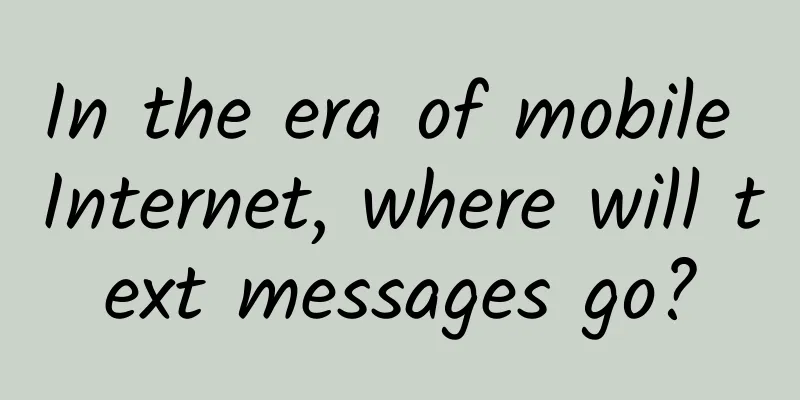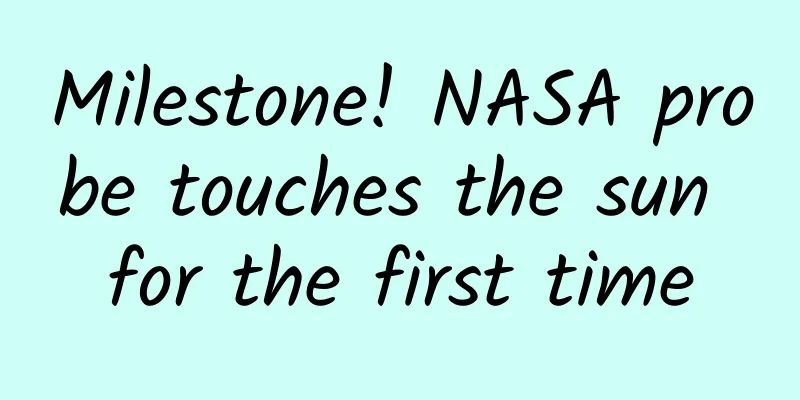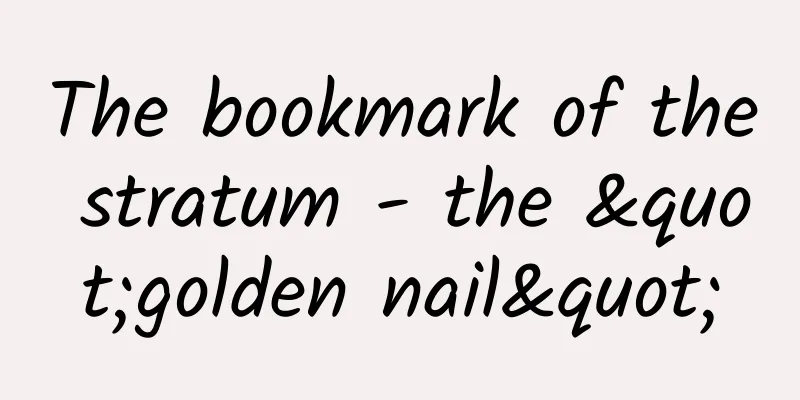In the era of mobile Internet, where will text messages go?

|
SMS, which was almost forgotten in the era of mobile Internet, has recently returned to people's attention due to several news reports. First, the media revealed that the converged communication service that China Mobile is promoting will be commercialized in 2015. This service will transform traditional SMS and MMS into "new message" services based on data traffic, and SMS and MMS will be charged according to traffic. After the commercialization of the converged communication service, mobile users will say goodbye to the era of sending SMS at 0.1 yuan per message. Later, China Mobile responded that the statement of "charging SMS according to traffic volume in 2015" was not accurate, and the project was still in the development stage, and there was no clear launch schedule. In other words, charging SMS according to traffic volume is true, but the time is yet to be determined, which does not necessarily completely deny the news of "charging SMS according to traffic volume in 2015". China Mobile's financial report for the first three quarters of 2014 showed that the use of SMS fell by 20.2% compared with the same period last year. As for me, I feel even more deeply that SMS has become a tool for me and has almost no longer a communication function. According to the division of SMS into "personal" and "notification" on Meizu MX 4, I roughly counted that there are 11 personal SMS contacts and 20 SMS messages in this month. There are more than 40 notification SMS contacts, that is, SMS messages sent by the SMS platform, and the number of SMS messages has long exceeded the last three digits, mainly flight notifications, express delivery notifications, movie ticket purchase notifications, bank card Alipay notifications and other short messages. Oh, by the way, there are also some fraudulent text messages saying "You won 180,000 yuan and an Apple computer", as well as illegal messages about "Big Sword" sent by fake base stations. Then there is another piece of news about text messages that is exactly related to these: In order to standardize communication short message service behaviors and safeguard the legitimate rights and interests of short message users, the Ministry of Industry and Information Technology has drafted the "Communication Short Message Service Management Regulations (Draft for Comments)", which stipulates the business operations and short message service charges of short message service providers, and proposes penalty measures for violations. The regulations will be open to the public for comments from today (November 5) to December 5. One of the core elements is that regarding the business operations of information service providers, the draft opinion proposes that no organization or individual may send commercial short messages to them without the recipient's consent or request. This is really good news that is long overdue. Many years after Internet companies launched call tagging and harassment blocking services, we are finally able to properly manage the short message service that once made people miserable. I can't help but think of a time when I received a call and inexplicably got many more mobile services, such as ringtone membership and health friends. Each of these services cost a few yuan, but the accumulation of a few things adds up to a lot. As for the dark secrets behind spam text messages, they are occasionally reported in the newspapers. Using ringtones as an example, the number of downloads of ringtones such as "Mouse Loves Rice" in the past could reach 6 million per month. At the price of 2 yuan per ringtone, a song could create 12 million yuan in value, and the bulk of it naturally went into the pockets of the operators. The ringtone downloads provided by operators may be the paid music downloads with the worst sound quality and the narrowest use. According to statistics in 2011, Chinese people received 12 spam messages per week. The gray industry chain behind it was worth tens of billions of yuan, accounting for almost half of the SMS market at the time, including a large number of SMS mass-sending channels approved by the telecommunications department. Here, the inaction of telecommunications operators or even their active participation is to blame. Today, due to the rapid development of OTT business, the residual value of SMS is not much. In other words, operators who realize that voice and information charges are not a mainstay have begun to transform, including China Unicom's launch of WeChat VoLTE and China Telecom's launch of QQ Music Targeted Service Card last year, which are the operators' performance of lowering their past strong position. Earlier, there was news that operators represented by China Mobile would charge for WeChat on the grounds that WeChat put pressure on the network, but after a period of noise, the matter was dropped. China Mobile said that the data flow of SMS is an inevitable trend, but it cannot be achieved by China Mobile alone. It requires the connection and coordination between China Mobile, China Telecom and China Unicom. In addition, in order to realize the "new message" function and complete the transformation of traditional SMS into data, the key lies in the transformation of the entire communication network. Speaking of the matter, removing the black history of ringtones and spam text messages, in fact, the operators have been more standardized in recent years than before, and the phenomenon of random deductions has been much less. Of course, it is still far from satisfactory. However, even if we start to rectify the text messages now, it still cannot save the decline of text messages. The disadvantages of text messages are not only reflected in the price, but also in the service. Text messages charged by traffic will not bear the heavy responsibility of instant messaging in the future. However, the direct binding of SMS to mobile phone numbers and its low dependence on 3G or 4G networks determine that SMS can be our second choice. And as I said at the beginning, the main purpose of SMS in the future may be "notification", with stronger tool attributes. Link to this article: http://www.ifanr.com/466379 |
<<: Before the official release of Android 5.0, 4.4 KitKat finally surpassed 4.1 Jelly Bea
>>: Lenovo + Motorola + Xiaomi > Apple + Samsung
Recommend
Check out the four growth strategies used by big companies like Tencent and NetEase
Behind the success of large companies, in additio...
Family dad car, eπ008 and Leapmotor C16, which one is the better replacement for Ideal L8
In the Chinese car market, what car can you buy w...
Why is the operation ineffective? You may be missing these 3 methods!
Every time you sell a product, you should keep re...
Throw away the controller! Humans are not far from gesture-controlled VR
The controller, as the most critical touch contro...
A guide to building a Douyin Blue V account matrix!
Douyin's Blue V ecosystem is very complex, an...
The Hunger Games of Internet TV: LeTV’s Suspension
Once any business model touches upon policy restr...
Wilson: Monthly report on new energy vehicle industry in April 2024
01. Sales performance Overall performance of the ...
How Finance Creates Value for Enterprises - Financial Management Based on Value Chain
How finance creates value for enterprises -- Intr...
Dongyang SEO training: How to avoid website keyword optimization errors?
With the development of the Internet, more and mo...
User growth and basic process!
However, today's article wants to do one thin...
Insomnia the day before work? Here is a guide to curing post-holiday syndrome →
Today is Sunday, and it is also the first day bac...
To follow the hot spots in new media operations, you need to get these 8 postures
After get off work, I ordered my favorite dishes ...
iOS 14.5 is available first! 217 new emojis added, green screen issue fixed
Apple's iOS system is very comfortable to use...
Top 10 predictions for the Internet industry in 2016: cloud computing, big data, and artificial intelligence
2016 is coming, what exciting trends will the Int...
NIO delivered 2,528 vehicles in November, more than half of the Q3 quarter, of which 2,067 were ES6
Recently, NIO announced that it delivered a total...





![June Marketing Node Reminder [Dry Goods Collection]](/upload/images/67cc135c92a1b.webp)



